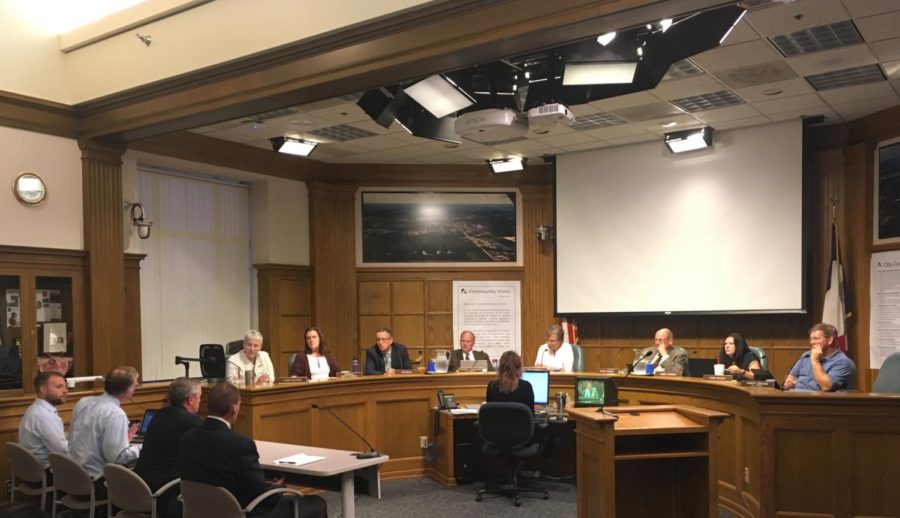Ames City Council Mulls ‘Complete Streets’
September 19, 2017
Ames City Council approved a “complete streets” plan proposed by Toole Design Group over the summer, which has 12 offices nationwide.
According to their website, Toole Design Group is “the nation’s leading planning, engineering and landscape architecture firm specializing in bicycle and pedestrian transportation.”
Toole Design Group gave a presentation to the council detailing their experience as a company and arguments in support of “complete streets” in Ames. Toole Design Group said they hope to include the university, the Ames school district and the Iowa Department of Transportation in their plans.
“Complete streets” are roadways designed to be safe for pedestrians, bicyclists and motorists. They also include examining streets and sidewalks to make sure they are accessible for disabled people.
Toole Design Group shared data that states most people feel as though they are forced to drive based on the construction of roadways. This sentiment was echoed by Ames Bicycle Coalition President Sarah Cady.
“When we’re at these open streets events or Eco Fair, whatever, people who say they would like to bike more, people who say they would like to have their kids walk to school, they don’t feel safe,” Cady said.
Although Toole Design Group has yet to formulate specific plans, their philosophy is to treat construction of “complete streets” as a process and make small, inexpensive changes opportunistically. In this vein, the Toole Design slideshow contained a slide showing what “complete streets” are not.
While Toole Design Group wishes to increase pedestrian and bicycle access, they did specify that not all streets share the same purpose, but stress creating a network so that cyclists and pedestrians can safely access the same destinations.
One practice Toole Design Group employs is converting four-lane roads to three-lane roads with bicycle lanes on either side of the street. The example, however, was in Pottstown, Pennsylvania, a town with a population of 22,661 in 2016, more than 10,000 less than the enrollment at Iowa State.
Councilwoman Gloria Betcher shared that the council receives many emails directing the council not to reduce lanes on streets like Lincoln Way because it will increase automotive traffic and also divert more people into residential neighborhoods to avoid the traffic on arterial streets with reduced lanes and increased traffic.
Toole Design Group works by developing topologies of each street based on the current uses of the street and what the city would like the street to be used for, including an ongoing dialogue with CyRide. Once developing a topology, the firm works to maximize uses of the street based on the desires of the city and resources available.
Mayor Ann Campbell noted that the Community Advisory Committee part of the policy development has yet to be cemented.
Damion Pregitzer, a traffic engineer with Toole Design Group, said the committee will consist of business associations, neighborhood associations, bicycle groups and students.
Following the establishment of the committee, Toole Design Group and the City of Ames will be taking public comments on what changes to make and where.
Pregitzer said the meeting will take place next month. He also said that they will utilize social media for gathering public input and can access updates and meeting information on the Toole Design Group website.

















